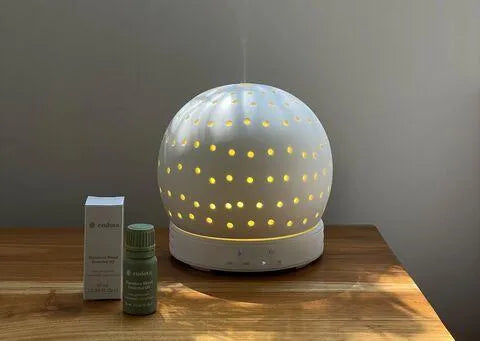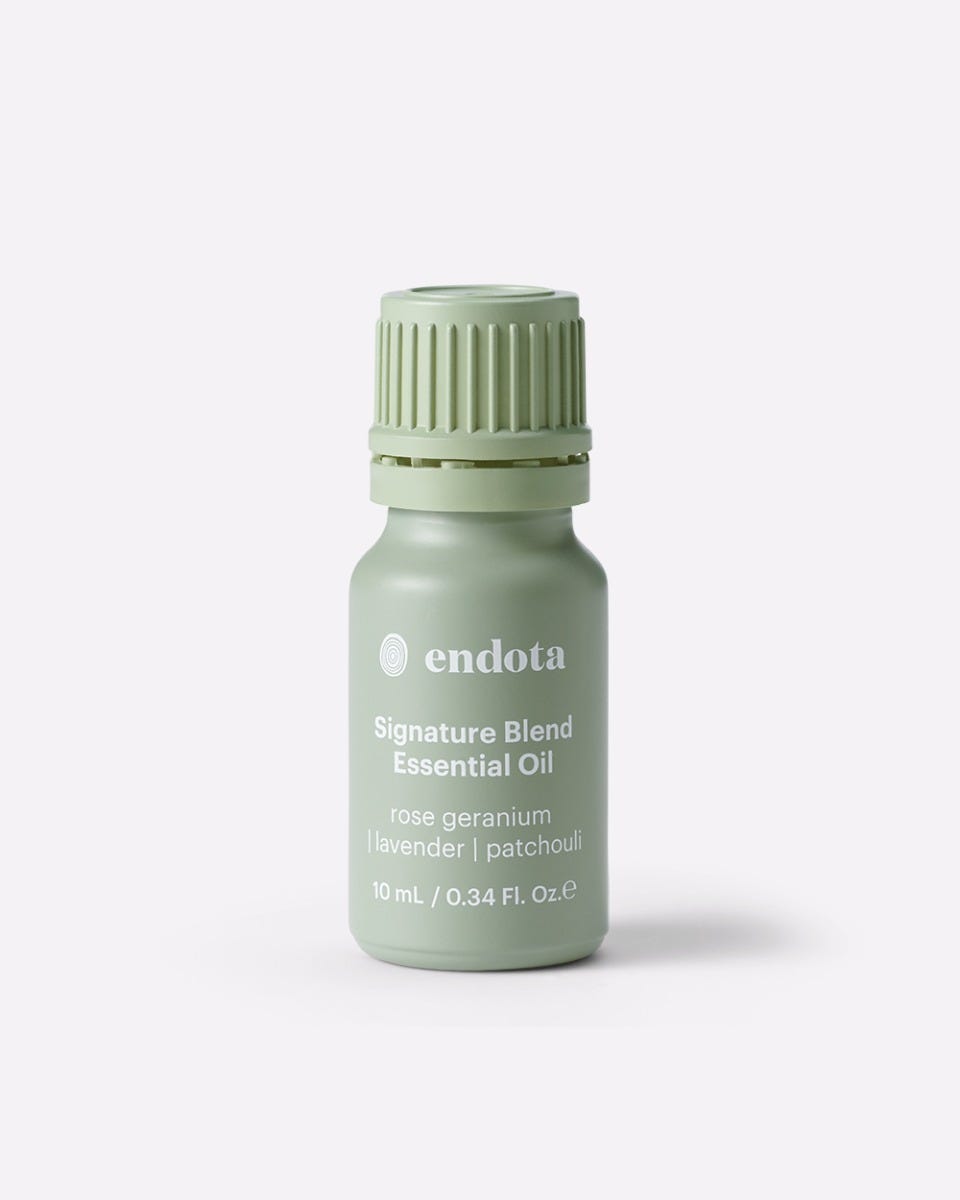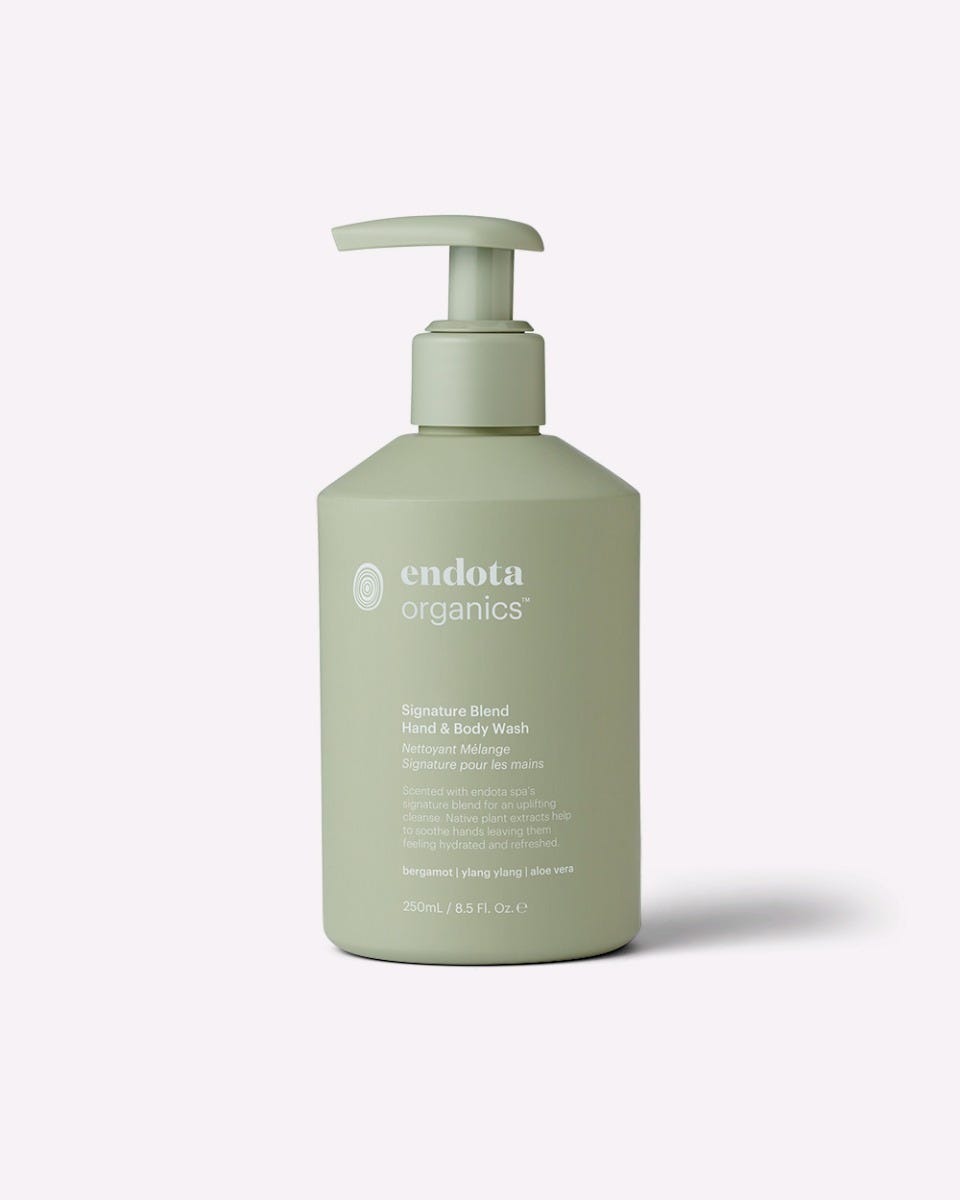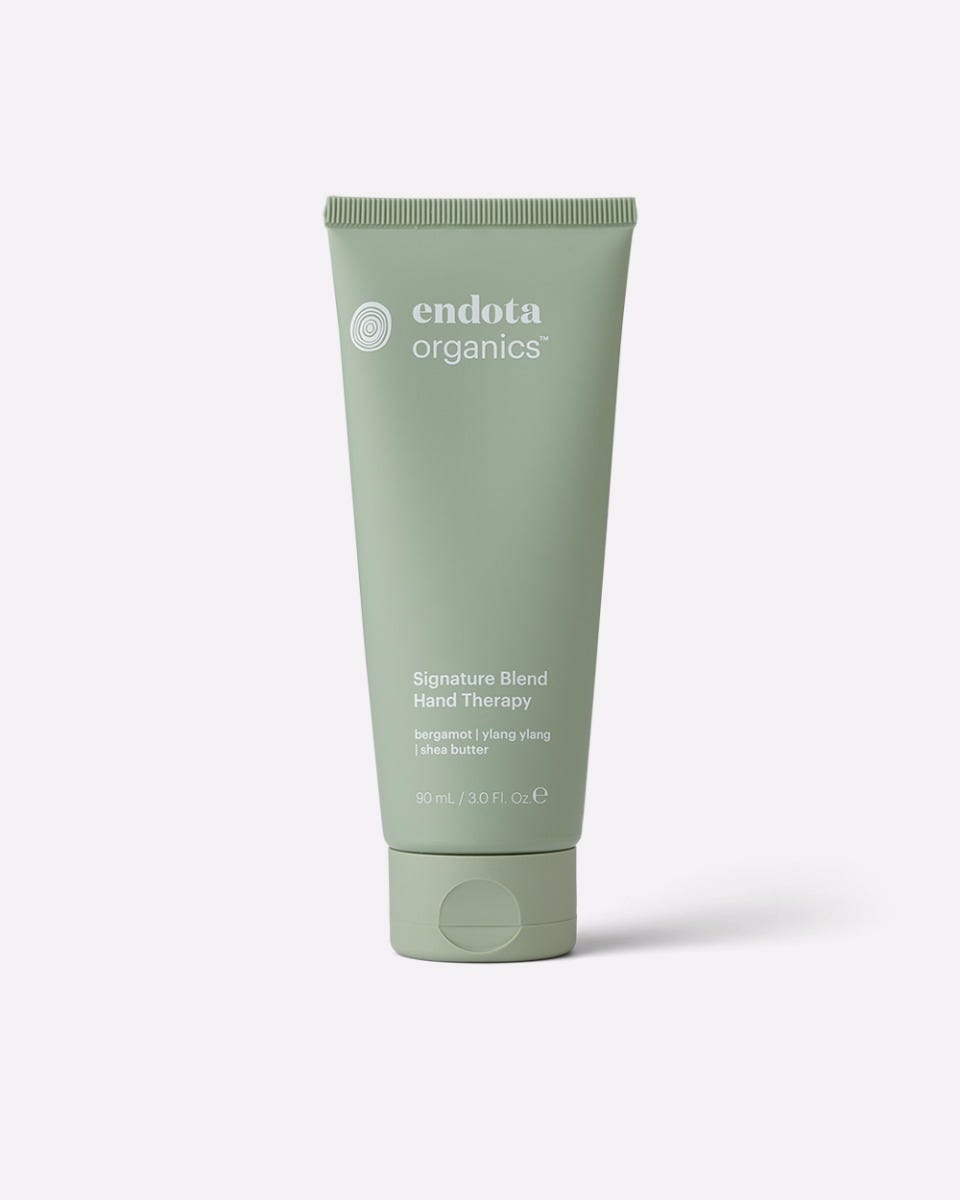the proven wellness benefits of 100% pure essential oils: a guide to functional scents
Since stress and mental fatigue have become all too common, natural, at-home solutions supporting wellbeing are more valuable than ever. 100% pure essential oils offer a holistic, plant-powered way to improve your health, without synthetic fragrances, additives or harsh chemicals. So if you struggle to switch off in the evening, need a mood booster, or have a racing or foggy mind, look into the benefits of essential oils - they’re wide-ranging and well-researched.
Here we explore the scientifically supported benefits of essential oils, and how 100% pure essential oils – like those found in our Signature, Calm, Clarity and Breathe blends – can support your physical, mental and emotional wellbeing.
what are 100% pure essential oils?
Unlike synthetic fragrances that often contain artificial chemicals, 100% pure essential oils are concentrated extracts derived from the leaves, flowers, stems or other parts of plants through methods like steam distillation or cold pressing. These oils capture the plant’s aroma and therapeutic properties, with no fillers, synthetic fragrances or chemical preservatives.
This purity matters, and because these oils are not diluted or chemically altered, they retain their full potency and effectiveness, making them ideal for aromatherapy and holistic wellness practices.
Essential oil blend creator, Michael Sempari, explains, “As the name suggests, aromatherapy is a type of therapy using aroma. Essential oils affect us through our olfactory system, which sends signals to our brain’s limbic system – responsible for controlling our emotions and behaviour. Each essential oil influences this system differently.”
So in essence, the power of scent goes far beyond just a nice-smelling aroma.

the proven benefits of 100% pure essential oils
When used for aromatherapy, 100% pure essential oils can give us functional benefits that range from stress relief to enhanced cognition and better sleep. Unlike synthetic scents, these oils contain complex plant compounds that have been studied for their impact on the body and mind.
According to Michael, this is where the idea of a functional scent comes in: “Functional scents are pure essential oil blends designed for a specific purpose – like sleep, breathing, or stress relief. For example, a sleep blend might contain chamomile or lavender, while a respiratory blend could feature eucalyptus or peppermint to help open the airways.”
Let’s explore how these functional scents work in real life – and how you can use them to support your daily wellness.
essential oils help reduce stress and improve sleep
Aromatherapy is one of the most accessible and natural ways to reduce stress and enhance sleep quality. 100% pure essential oils like lavender, ylang ylang, chamomile and bergamot have calming properties backed by clinical studies.
If you’re feeling restless, try our calm essential oil
The soothing blend of ylang ylang, lavender and bergamot in our Calm Blend Essential Oil delivers a fruity-floral bouquet designed to help ease tension and promote deep relaxation.
- Lavender oil has been widely studied for its calming effects. Research shows it can help lower cortisol levels and improve sleep quality.¹
- Chamomile oil works by calming the nervous system, helping you wind down and prepare for sleep.²
- Bergamot oil is known for reducing anxiety and lifting your mood.³
Alternatively, our Dream Essential Oil is made up of clary sage, which can help reduce feelings of anxiety before bed⁴ and marjoram, which quietens the mind⁵, as well as lavender, to create a restful bedtime ritual. These oils can help ease you into a deeper, less interrupted sleep.

essential oils help boost focus and mood
If your mind feels foggy or you’re struggling to concentrate, the benefits of essential oils for clarity and focus are worth exploring. Certain oils can stimulate alertness, lift energy levels, and improve cognitive performance.
For a vague or racing mind, try our clarity essential oil
The energising blend of our Clarity Blend Essential Oil helps you sharpen your senses to stay focused through your workday.
- Peppermint oil boosts cognitive performance and alertness.⁶
- Rosemary oil has been linked to improved memory and attention span.⁷
- Lemon oil provides a refreshing lift that combats mental fatigue.⁸
Use this blend when working, studying or powering through a long to-do list.

essential oils help restore balance
When life feels overwhelming and you need a moment to find your centre, 100% pure essential oils can offer a natural way to unwind and restore balance. Certain blends are specifically crafted to promote relaxation, reduce stress, and gain emotional stability.
For body and mind renewal, try our signature essential oil
Our Signature Blend Essential Oil is a blend of rose geranium, bergamot, and patchouli, which helps bring the endota experience home, creating a self-care sanctuary.
- Lavender oil is widely recognised for its ability to help reduce anxiety, improve sleep quality, and promote overall relaxation.⁹ It’s also useful for people who experience insomnia.¹⁰
- Geranium oil is known for its capacity to help reduce stress and improve mood, working to balance both your mind and body. Research suggests it can also contribute to hormonal balance, further supporting emotional wellbeing.¹¹
- Ylang Ylang oil has been shown to help reduce heart rate and blood pressure, promoting a sense of calm and emotional stability.¹²

respiratory and physical benefits of pure essential oils
Essential oils can do more than lift your mood – they can help you breathe easier and support your immune system. 100% pure essential oils with decongestant and antimicrobial properties are excellent for respiratory wellness.
A refreshing blend of eucalyptus, lemon and lavender, our Breathe Essential Oil helps clear airways and reinvigorate your senses.
- Eucalyptus oil is one of the best for relieving nasal congestion and promoting clear breathing.¹³
- Peppermint oil supports airflow and soothes sinus irritation.¹⁴
- Tea tree oil is known for its antimicrobial benefits, which may support respiratory health.¹⁵
why using 100% pure essential oils matters
Not all fragrances are created equal. Some contain synthetic additives, diluted oils, or artificial fragrances that can irritate the skin and deliver fewer therapeutic benefits. That’s why choosing 100% pure essential oils from transparent sources is important.
Our essential oil range is made from high-quality, 100% pure essential oils, sustainably sourced and crafted for maximum efficacy. These natural plant extracts are free from synthetics and formulated with intention, so every drop contributes to your wellbeing.
add essential oils to your wellness repertoire
The science is clear: 100% pure essential oils offer real benefits for body and mind. From stress relief and sleep improvement to boosted focus and better breathing, aromatherapy is a gentle, effective way to support your daily wellbeing.
Try diffusing our aromatherapy collection in a diffuser and bring the benefits of essential oil into your daily rituals.








